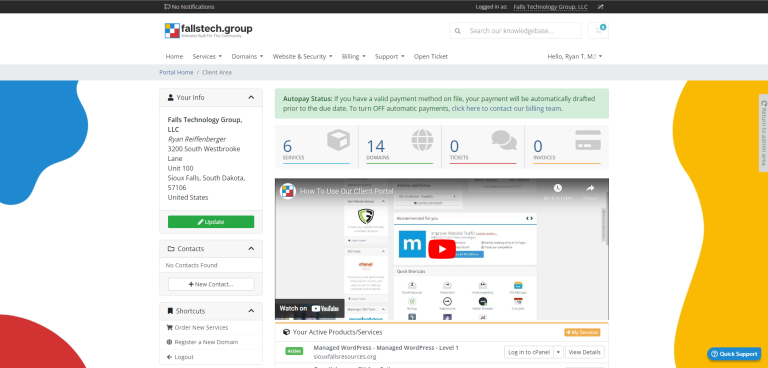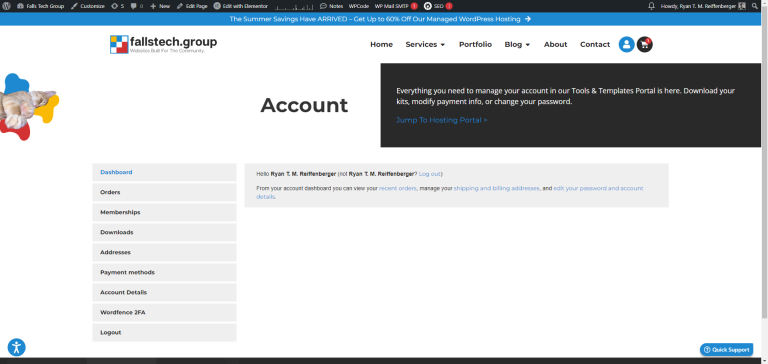Search Engine Optimization is a topic that garners quite a bit of attention, especially after the recent push to E-Commerce during the 2020-2021 pandemic in the United States. Although it gets quite a bit of attention, it’s difficult for most people to actually describe what SEO is or does for a website. So how are Web Design and SEO related?
In layman’s terms, Search Engine Optimization is the process of optimizing a website layout, copy, and performance to provide the best possible web experience for search engines. In turn, this also delivers a better experience for users in both navigating to your website, and the experience they have once they have arrived.
Website Design is a key factor in determining SEO scores and rankings online on search engines like Google or Bing. If a website does not have a valid SSL certificate, or garners a very slow load speed, your ranking on these search engines may decrease and you could end up towards the bottom, or worse – on page two.
Factors That Affect SEO
To explore more deeply how website performance specifically affects search engine optimization, we need to break it up into a few different categories.
The Server Computer
In order to host a website that loads quickly, you need a server computer behind it that is capable of handling the load that your website incurs. Multi-core computers are always recommended, especially for heavier traffic websites. In most cases, you can accomplish what you need with two or more cores, and a minimum of 4GB of RAM depending on the operating system you choose to run.
The Operating System
The next step to ensuring that you are running your website on a secure and stable platform, is ensuring that your website software is running on an operating system that you are familiar with (if you manage your own server) and that you can troubleshoot and tweak easily. We recommend using a distribution of REHL (Red-Hat Enterprise Linux) such as CentOS, Alma Linux, or Rocky Linux.
The Server Software
You can have a server that is three times more powerful than you need, but if you don’t have the right software installed for your use case, you will not be able to get ideal performance out of your system. This includes everything from security suites, to web servers, database servers, mail servers, and more. A great example of commonly used software would be Apache for a web server, and MySQL for a database server.
Increase WordPress Performance For FREE With These Tips!
Sign up for our FREE email series and improve your website load speeds!
The Website
Once you have a server established, the choice in frameworks, languages, and CMS systems can directly impact the performance, especially if the frameworks are not optimized for heavy traffic. In many cases, it may be wiser to use an existing CMS like WordPress to achieve your goals, which would give you a much faster ability to start your project and is updated frequently by the developers. In 95% of cases, we do not recommend hand-coding your own website unless you are a professional web developer and designer.
The Sitemap
After building your website and structuring out your pages, you will want to make sure that you have a sitemap for your website. Without a sitemap, Google will not know how to index your website or what pages to scan into its index to show visitors on their site who may be looking for something.
The Copy
When building your website, you need to make sure that the copy you are writing on your pages is relevant to what you are trying to talk about. For instance, if you have an article about Web Design, you don’t want to write something that’s off-topic for that title. When writing your copy, it is recommended that you have 1500 or more words on your page for true rankings, and that the content written within matches the meta, keywords, and configuration of the page itself.
The Meta
On the front end, the most important part is Web Design and SEO is the most important factor of the back end. Properly configuring the back-end of pages to provide the right information to search engines can be the difference between your pages showing up, and your pages never being indexed. While the copy on your page is important, if your meta does not match – you will run into issues with the search engines not indexing your website properly.
Search Engine Consoles
After you’ve built your website and want to present it to the world, to get the search engines to start looking at your website you need to set up your search consoles. Most commonly, this will be done with Google and Bing, but if you are outside of the United States there may be other networks you will want to register with. Entering in your website and hooking up your sitemap are the most important steps of this process, and doing so will tell the search engine that you are ready for the world to see your content. Once the search engine has scanned your website for it’s Web Design and SEO configuration, they will score your website and usually provide you information as to how you can improve your existing configuration for their platform.
The Cache and CDN (Optional, but Recommended)
Your website cache will allow you to deliver resources to your customers faster, help your website load faster, and allow your visitors to get their mission accomplished quicker on your website. A great example of this would be utilizing a caching plugin and tying that into a CDN service like CloudFlare or Quic.Cloud.
Your caching system will typically be something installed into your CMS system, an example being a plugin like WP-Optimize for WordPress. This would allow you to configure caching, database optimization, image optimization, and more – which all impact your website load speeds, and furthermore, your SEO rankings.
Your CDN system will typically be an external service that you will have to pay a fee for. This service allows you to pre-load a copy of your website into their Content Delivery Network of servers, giving visitors the chance to load your website from the closest datacenter to them instead of from your server directly. This will result in lower latency when loading your page, and faster delivery of your website resources.
Altogether, You Have SEO Optimization
After stacking all of these factors on top of each other, you can see that there are many ways that you could miss a step during the process. SEO is a difficult process to implement if it is not planned properly, and doing so can bring very plentiful benefits to you and your website. Investing the time and money into this project is something that every website owner should do if you are serious about wanting to get traffic onto your website. Web Design and SEO are as closely related as two sides of a brain. It is very difficult for one to function without the other.
Website Designers will commonly advertise that they are implementing SEO Optimization into your website, but the only way to know for sure is to check their process. There are many different tools on the market available to scan SEO, but it is recommended to speak directly with an SEO specialist to allow them to utilize their professional level tools to get you exactly the information that you need as there is much more to SEO than just a few simple scans.
If you are struggling to SEO Optimize your website, our team is professionally trained in SEO Research, Keyword Research, Copy Analysis, and WordPress Administration to accomplish all of the items in this list. We’re happy to audit your website to help you determine which of these factors may be impacting your domain.


